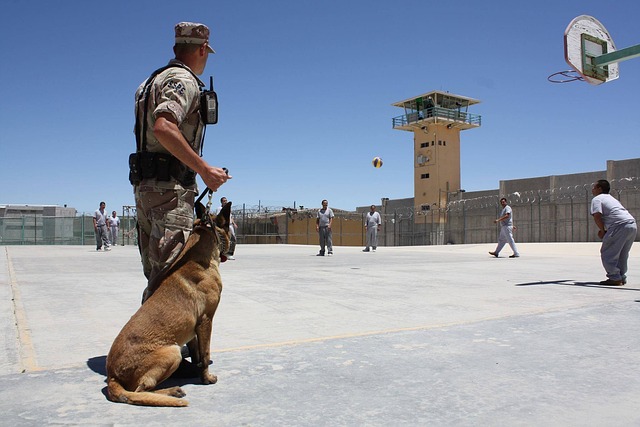Returning veterans face unique challenges adjusting to civilian life, including navigating complex DUI laws. Vehicle Safety Features (VSFs), such as advanced airbag systems, electronic stability control, and anti-lock braking systems, play a crucial role in DUI cases for veterans. Modern cars' safety technologies like automated emergency braking and lane-keeping assist provide real-time evidence of driver impairment levels, aiding in defense strategies under DUI law. Understanding these features can empower veterans to receive fair treatment, reduce charges, and mitigate penalties. Specialized legal resources are available to educate veterans about VSFs and DUI legislation, enhancing their defenses.
Veterans returning home face unique challenges, including a higher risk of DUI charges due to post-traumatic stress. Understanding tailored defense strategies is crucial. This article delves into the intricate world of DUI laws, focusing on how vehicle safety features can be leveraged as a defense. We explore advanced technology’s role in deterring charges and navigate legal loopholes specific to veteran clients. Through case studies, we reveal successful tactics, alongside resources offering support for veteran drivers, ensuring they receive fair treatment under the law.
- Understanding DUI Laws: Protecting Veterans' Rights
- Vehicle Safety Features: A New Defense Strategy
- Advanced Technology: Deterring DUI Charges
- Legal Loopholes: Navigating for Veteran Clients
- Case Studies: Successful DUI Defense Tactics
- Resources and Support for Veteran Drivers
Understanding DUI Laws: Protecting Veterans' Rights

Veterans returning from service face unique challenges, including adjusting to civilian life and navigating complex legal systems. Understanding DUI laws is crucial for protecting their rights, especially considering the potential impact on their future and well-being. The DUI process can be intricate, with various factors influencing outcomes, such as prior convictions, blood alcohol levels, and vehicle safety features.
Armed with knowledge about DUI law, veterans can better protect themselves. Vehicle safety features play a significant role in these cases. Advanced airbag systems, electronic stability control, and anti-lock braking systems can contribute to mitigating liability. Awareness of these technological advancements allows veterans to present a stronger defense and understand the potential consequences and benefits for their specific circumstances.
Vehicle Safety Features: A New Defense Strategy

In the ever-evolving landscape of DUI law, defense strategies are continually adapting to address new legal precedents and technological advancements. One area that has gained significant traction is the exploration of vehicle safety features as a potential defense mechanism for veterans facing DUI charges. Modern vehicles are equipped with a myriad of advanced safety systems designed to prevent accidents and protect occupants, data that could be pivotal in challenging DUI prosecutions.
These safety features include automated emergency braking, lane-keeping assist, and adaptive cruise control, among others. By presenting evidence of these active safety mechanisms and their potential impact on the incident in question, defense attorneys can construct a compelling narrative that contextualizes their client’s behavior within the broader framework of vehicle technology. Such an approach not only highlights the complexities of DUI cases but also underscores the importance of considering cutting-edge automotive advancements in legal strategies.
Advanced Technology: Deterring DUI Charges

Modern vehicles are equipped with advanced technology aimed at enhancing safety, but they also play a crucial role in deterring DUI charges. Integrations like automatic emergency braking and lane-keeping assist can provide compelling evidence of a driver’s impairment level, helping to mitigate penalties. These systems use sensors and cameras to detect potential hazards and intervene when necessary, demonstrating that the driver was actively attempting to operate the vehicle safely.
Moreover, Vehicle Safety Features (VSF) are not just passive protections; they actively communicate with law enforcement agencies. Data from these features can be used to show that a driver’s actions were consistent with impaired driving, as opposed to normal driving habits. Understanding how this technology works and its implications under DUI law is essential for veterans seeking tailored help in their defense strategies.
Legal Loopholes: Navigating for Veteran Clients

Veterans facing DUI charges often find themselves in a unique and complex situation. One aspect that can work in their favor is understanding potential legal loopholes, especially those related to vehicle safety features. Modern vehicles are equipped with advanced systems designed to enhance driver safety, and these technologies can be crucial in building a defense strategy. For instance, some cars have automatic emergency braking or lane-keeping assist, which could provide evidence of the driver’s attempt to maintain control and avoid an accident.
Navigating DUI laws for veteran clients involves exploring these technological advancements and their implications. A skilled attorney can use vehicle safety data to challenge the prosecution’s case, presenting a stronger defense. By utilizing modern car features as evidence, legal representation can help reduce charges or mitigate penalties, ensuring veterans receive fair treatment under DUI law while considering vehicle safety aspects.
Case Studies: Successful DUI Defense Tactics

In the realm of Veteran’s DUI defense, understanding both vehicle safety features and the intricacies of DUI law is paramount. Case studies reveal that successful defenses often hinge on leveraging advanced vehicle technology and exploring legal loopholes in DUI legislation. For instance, modern cars equipped with autonomous emergency braking systems and advanced driver-assistance systems (ADAS) can provide compelling evidence of a reasonable doubt regarding impairment. These features demonstrate the driver’s awareness and control, contrasting with traditional DUI allegations.
Moreover, attorneys can challenge standard field sobriety tests by referencing vehicle dynamics. If a Veteran’s vehicle handling differs due to adaptive equipment or unique driving patterns, it may cast doubt on the accuracy of sobriety assessments. By integrating knowledge of Vehicle Safety Features and DUI Law, tailored defenses can significantly enhance outcomes for Veterans facing DUI charges, emphasizing the importance of nuanced legal strategies in this domain.
Resources and Support for Veteran Drivers

Many veterans face unique challenges when navigating the complexities of DUI (Driving Under the Influence) laws, but they also have access to tailored resources and support systems. Beyond general legal aid, organizations dedicated to veteran affairs offer specialized assistance, recognizing the specific circumstances that can impact their driving experience. These groups often provide education on vehicle safety features designed to prevent accidents, empowering veterans with knowledge about advanced driver-assistance systems (ADAS) and their role in maintaining safe driving practices.
Understanding DUI laws is crucial for all drivers, but veterans can benefit from resources that accommodate their unique backgrounds. By leveraging these support networks, veterans can gain insights into the legal process, vehicle technology advancements, and strategies to defend against DUI charges effectively. This tailored approach ensures they receive fair treatment under DUI laws while leveraging modern vehicle safety features to their advantage.
Veterans facing DUI charges require specialized legal assistance, especially with complex laws and unique circumstances. By understanding DUI legislation and leveraging modern technology, experienced attorneys can offer tailored defenses. Vehicle safety features play a crucial role in presenting robust arguments against charges. Through strategic navigation of legal loopholes and successful case studies, veterans can access resources to protect their rights while ensuring safer driving practices. This comprehensive approach ensures veterans receive the support they deserve, addressing both legal issues and promoting road safety.






